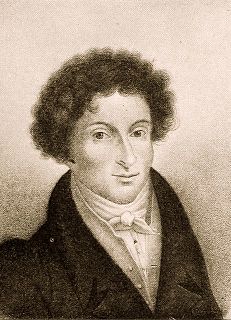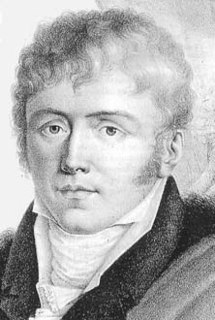La passione di Gesù Cristo is an oratorio by composer Antonio Salieri that uses a libretto by Metastasio. While many composer's set music to this libretto, Metastasio is recorded to have said before Joseph II, Holy Roman Emperor that Salieri's setting "was the most expressive of any written on this poem." [1] [2] The work premiered in Vienna, Austria during the advent season of 1776.
An oratorio is a large musical composition for orchestra, choir, and soloists. Like most operas, an oratorio includes the use of a choir, soloists, an instrumental ensemble, various distinguishable characters, and arias. However, opera is musical theatre, while oratorio is strictly a concert piece – though oratorios are sometimes staged as operas, and operas are sometimes presented in concert form. In an oratorio the choir often plays a central role, and there is generally little or no interaction between the characters, and no props or elaborate costumes. A particularly important difference is in the typical subject matter of the text. Opera tends to deal with history and mythology, including age-old devices of romance, deception, and murder, whereas the plot of an oratorio often deals with sacred topics, making it appropriate for performance in the church. Protestant composers took their stories from the Bible, while Catholic composers looked to the lives of saints, as well as to Biblical topics. Oratorios became extremely popular in early 17th-century Italy partly because of the success of opera and the Catholic Church's prohibition of spectacles during Lent. Oratorios became the main choice of music during that period for opera audiences.

Antonio Salieri was an Italian classical composer, conductor, and teacher. He was born in Legnago, south of Verona, in the Republic of Venice, and spent his adult life and career as a subject of the Habsburg Monarchy.
La Passione di Gesù Cristo is the title of a libretto by Metastasio which was repeatedly set as an azione sacra or oratorio by many composers of the late baroque, Rococo and early classical period.
In 2004 Capriccio released a recording of the work by the Das Neue Orchester and Chorus Musicus Köln under conductor Christoph Spering with soloists Melba Ramos, Hanno Müller-Brachmann, Franziska Gottwald, and Florian Mock. [3]
Capriccio is a formerly German, now Austrian, classical music record label.
Christoph Spering is a German conductor of classical music, especially church music. He founded in 1985 the choir Chorus Musicus Köln and in 1988 the orchestra Das Neue Orchester.
Melba Ramos is a Puerto Rican- born soprano active in the opera houses and concert halls of Europe. Since 1989 her operatic career has been primarily in Germany and in Austria where she has sung many leading roles at the Vienna Volksoper. In 2002, she created the role of Faustina in the posthumous premiere of Joachim Raff's Benedetto Marcello.








